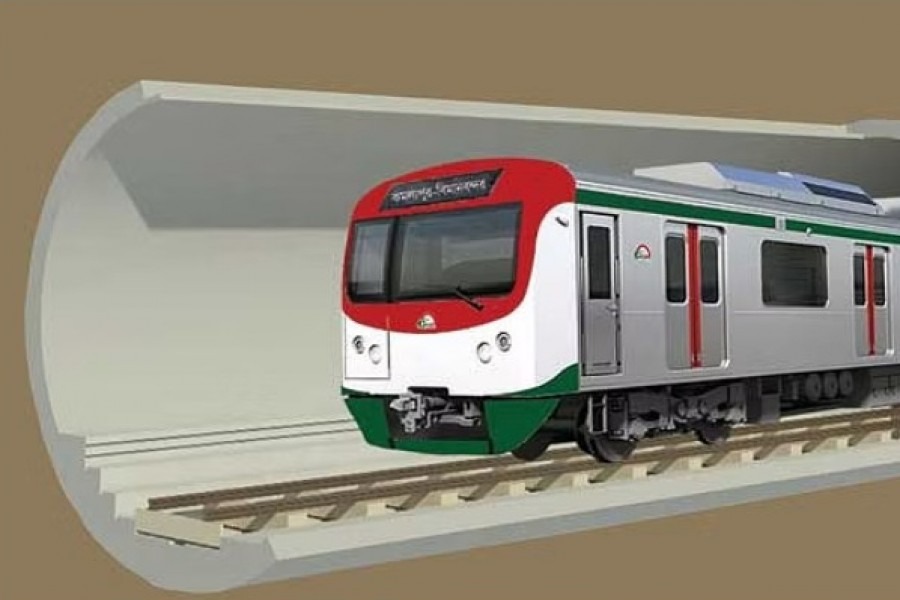
Published :
Updated :

Shiabur Rahman
The construction of the metro rail in Dhaka, a city notorious for its chaotic traffic for a long period, was considered one of the milestones in the urban transport system of Bangladesh. The modern mode of commuting brought a sense of pride to Bangladeshis as the metro rail is not just a transport project; it is a symbol of progress and development. However, an imprudent decision of the authorities has surprised many of those who travel on the metro. One fine morning, commuters discovered numerous advertisement stickers pasted inside metro rail coaches, compromising its aesthetic beauty for meagre financial returns.
Like the metro rail coaches in other cities, the ones in Dhaka have electronic display boards to run digital commercials in a sophisticated and acceptable way. Still, the authorities allowed advertisement stickers on the walls of the coaches. It is a stark contrast between the beauty of the metro rail and the crudeness of tasteless advertisement stickers. This extent of vulgarity may suit rickshaws, not a state-of-the-art transport system. Anyone is supposed to feel frustrated when they realise that over 60 countries currently operate metro rail systems, but none of them, so far as reports suggest, have allowed advertisement stickers inside their trains as a revenue source. This seems to be a uniquely Bangladeshi 'invention', that prioritises short-term earning over long-term preservation of a valuable national resource. Have the 'inventors' considered what will happen when the stickers will need to be taken off to give room for new advertisers? The removal of the adhesive residue from the coaches will result in scratches on the surface. So, a big concern is whether the money being earned from the advertisement stickers justifies the long-term damage. If the net earnings, after accounting for such damage, are small, then the entire exercise will prove to be a poor trade-off. No one can be blamed if they suspect that such an advertisement option was introduced less out of consideration for national interest and more from the narrow interest of certain individuals in the authorities who viewed the metro rail as another means to exploit it commercially.
The metro rail advertisement stickers awfully fall in step with the broader culture in Bangladesh where national resources, public infrastructure, or cultural heritage are often spoiled by short-sighted decisions. Instead of considering the metro a symbol of national pride, which is worth protecting and showcasing as an example of modern Bangladesh, it is being reduced just to yet another means of cheaply exploiting commercial interests. The problem also highlights a sorry state in governance and management of public resources. The authorities too often see national resources not as treasures to be preserved but as instruments to earn revenue from, no matter how the spoil the enduring theme and tradition. This is not to mean that using natural resources as earning platforms is always bad. It is bad and unacceptable when their preservation is compromised for wanton earning.
Now what the authorities need to do is simple. They must remove the stickers and follow a strategy that preserves the metro and its beauty. They do not need to invent anything. What they need is to follow the best practices others are pursuing. There must be a cultural shift in the way we treat our resources. We need to keep in mind that they are not just revenue sources, they are symbols of our identity and pride. Spoiling them for meagre earnings is not just a financial miscalculation; it is a betrayal with the nation's pride.
rahmansrdk@gmail.com


 For all latest news, follow The Financial Express Google News channel.
For all latest news, follow The Financial Express Google News channel.